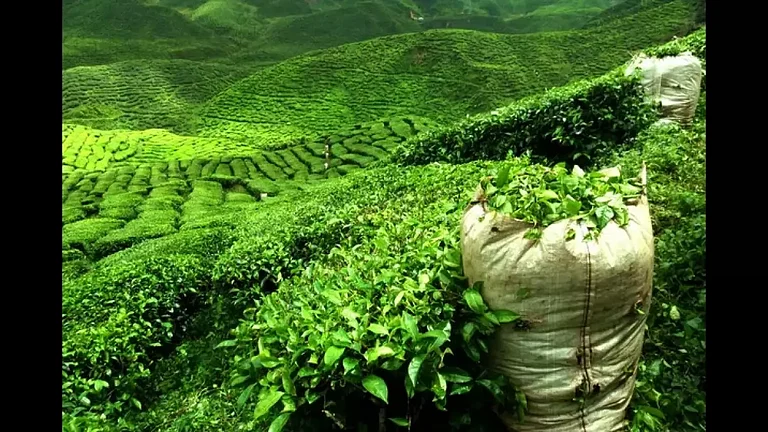Over 30 Darjeeling tea gardens damaged by heavy rains and landslides.
Planters estimate losses exceeding ₹50 crore, affecting autumn tea production.
Climate change blamed for erratic rainfall patterns and rising disaster frequency.
Heavy Rains Ravage Darjeeling Tea Estates, ₹50 Crore Loss Linked to Climate Change
Flash floods and landslides devastate North Bengal’s iconic tea gardens, disrupting autumn yield
The recent flash floods and landslides triggered by heavy rain in north Bengal have caused massive destruction in at least 30-35 tea gardens in Darjeeling, with reports of loss of plantation areas, deaths of workers and damage to houses of labourers, prompting planters to convene a meeting to assess the situation, stakeholders said.
Darjeeling tea planters are now collecting data related to damage from the gardens and will discuss various issues during a proposed meeting on Thursday, they said.
Tea bushes in many gardens have been washed away, while the loss of tea-bearing land has left permanent damage to several estates, planters said.
SS Bagaria, Chairman of the Bagaria Group, which owns three gardens in Darjeeling, told PTI that the industry’s overall loss due to heavy rain and landslides in the hills could be at least ₹50 crore.
“Heavy rain and landslides have severely hit tea gardens in the hills, with reports of loss of lives and extensive damage to property. There was no work or electricity for two to three days. However, power operational gardens in Darjeeling are severely affected,” industry veteran and Chamong Tea Chairman Ashok Lohia told PTI.
Roads have been severely damaged and the government and the Gorkhaland Territorial Administration (GTA) are working to clear debris and rubble from the blocked roads, he said.
But the need of the hour is to make the internal roads within the estates motorable as workers are unable to report for work, he said adding that restoration of road connectivity is essential. He said the industry was collecting data from the ground and “a meeting has been convened for Thursday to assess the damage”, he said.
“The autumn production in October-November, which accounts for 15% of the annual output, is now in balance and the loss will be severe if the road communication is not restored at the earliest,” Lohia said.
Climate Change Worsens Impact
According to the Atmosphere 2025 study, rising temperatures and erratic rainfall patterns have already started affecting tea production in Darjeeling.
(With inputs from PTI.)

